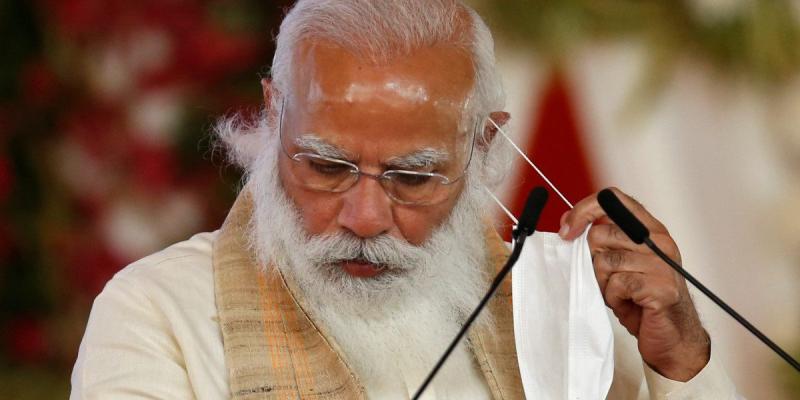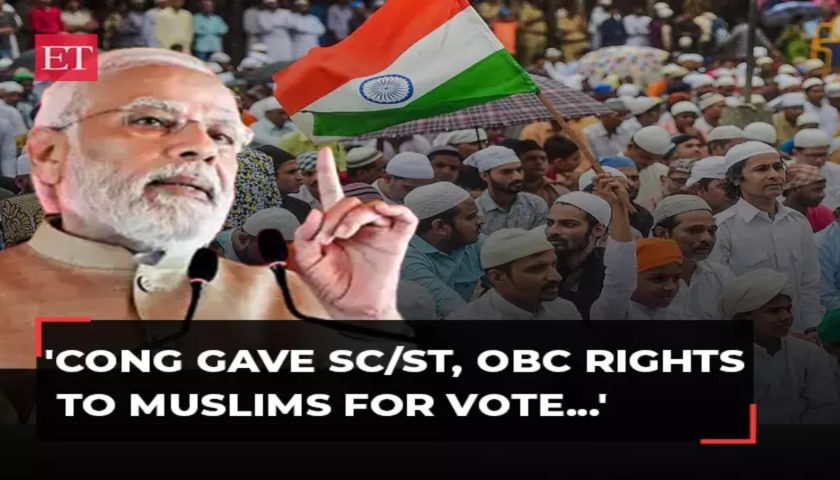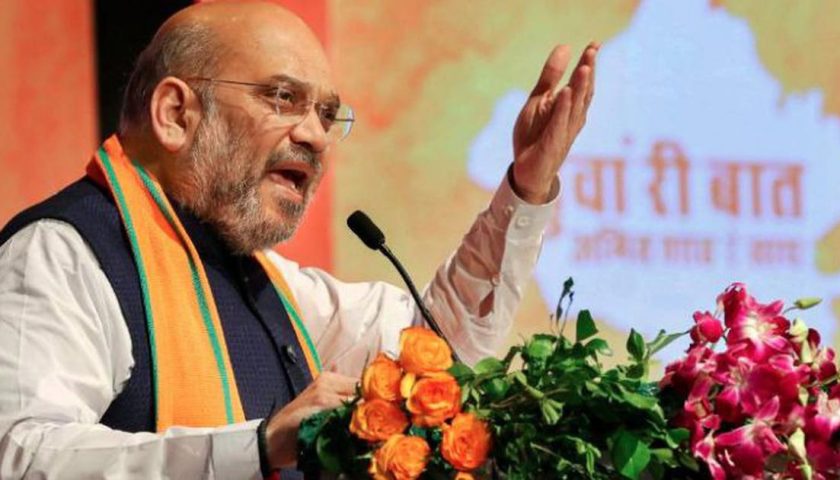By: Rana Ayyub
For weeks now, criticism has been building around Indian Prime Minister Narendra Modi’s visit to Washington. The prime minister and his Bharatiya Janata Party have been rightly accused of stoking sectarian violence between Hindus and Muslims. Missing in this discussion have been the surprising and quiet ways the BJP has managed to co-opt popular culture, and especially cinema, for its political ends.
“The Kerala Story,” a feature film released last month, is emblematic of this broader trend.
The film purports to be a dramatization of a supposedly widespread phenomenon, telling the tale of a Hindu woman who converts to Islam, only to be radicalized and eventually recruited to join the Islamic State. The trailer luridly shows a Muslim woman brainwashing her friends to shun Hinduism. It shows a Muslim priest asking men to seduce Hindu women, impregnate them, distance them from their families and later send them to fight a holy war.
The description of the trailer on YouTube by the film’s creators originally claimed that the film’s protagonist is a fictionalized composite that tells the story of some 32,000 women who have suffered the same fate. The trailer quickly went viral, with prominent Hindu nationalist activists urging their followers to watch the film to understand what is happening in their country.
The BJP campaigned very hard on the back of the film in the southern state of Karnataka, with close to 20 mass rallies and eight road shows. At one of the rallies, Modi himself emphatically endorsed viewing the film. He said it portrayed the true face of terrorism and accused the opposition of trying to block the film’s release.
The film was indeed broadly criticized for its lurid air. India’s fact-checking website Alt News demolished the claim that tens of thousands of Hindu women had been brainwashed and recruited. It pointed out that reporting in 2021 found that four Indian women verifiably ended up jailed in Afghanistan after following their husbands in joining the Islamic State in Khorasan Province.
The West Bengal state government did try to stop the film from being shown. A Supreme Court justice, while deploring that the film vilified an Indian community, affirmed that the court would protect free speech and overturned the ban. The court, however, did demand that the film’s makers add disclaimers to the effect that “there is no authentic data to back up the suggestion that the figure of conversion is 32,000 or any other established figure,” and that “the film represents a fictionalized account of the events which form the subject matter of the film.”
But the damage was done. The film grossed some $37 million worldwide, becoming the second-highest-grossing Hindi film of 2023.
“The Kerala Story” playbook is a refinement of what has come before. Last year, I wrote about “The Kashmir Files,” a film so vicious toward Muslims that I left the theater fearing for my safety. “The Kashmir Files” was a box office success, too, pulling in audiences despite covid. An interesting film industry report found that more than 60 percent of the “Kashmir Files” audience were not regular cinemagoers, and that many were drawn to it by a word-of-mouth marketing campaign with its roots in BJP messaging.
Anurag Kashyap, one of India’s most celebrated filmmakers, told me that producers are being asked to make films to government spec. “Powerful Hindu nationalist groups like the RSS [Rashtriya Swayamsevak Sangh] are meeting producers and telling them what films are to be made so it can empower the government’s own agenda,” Kashyap said.
Worse, some filmmakers are finding their films being unceremoniously dropped by streaming platforms in the past two years. Dibakar Banerjee, another prominent director, found his film “Tees,” which tells the story of a Muslim family coping with discrimination, shelved by Netflix. Banerjee said Netflix told him it felt it was not the right time to release the film. He surmised fear of political blowback scared off the streaming giant.
Meanwhile, several other films have been announced. “Swatantra Veer Savarkar” is a biopic about the founder of the Hindutva political ideology. “Godhra” will focus on the burning of a train in Gujarat in 2002 that killed nearly 60 Hindu pilgrims — an incident that triggered three days of anti-Muslim riots that cost more than a thousand lives (occurring while Modi was chief minister of the state). A promotional poster for “Hum do Hamare Barah,” a film that tackles the contentious topic of the population explosion in India, features a Muslim man, his pregnant wife in hijab and 11 children. And a teaser for a film titled “72 Hoorain” (“72 Virgins”) promises to show “the real face of Islam,” featuring visuals of known terrorists.
All these films will probably be released before the 2024 general election. Judging from the success of “The Kerala Story,” they are likely to find an enthusiastic audience — and provide more ammunition for the BJP’s campaigning.
It’s fortunate that the world is noticing what Modi and his party do in India to stir sectarianism. It should pay attention, too, to the means by which he sways the masses to align with his intolerant vision.






